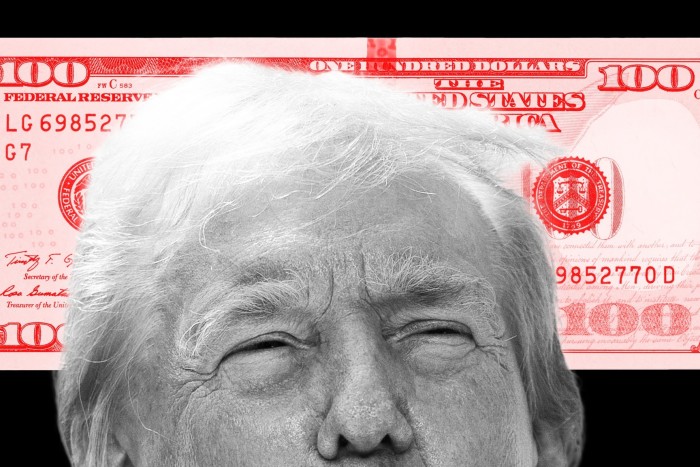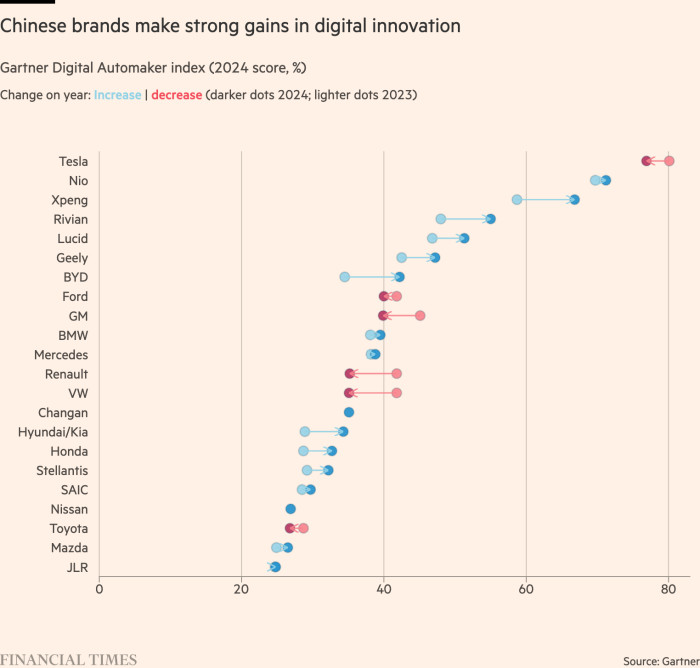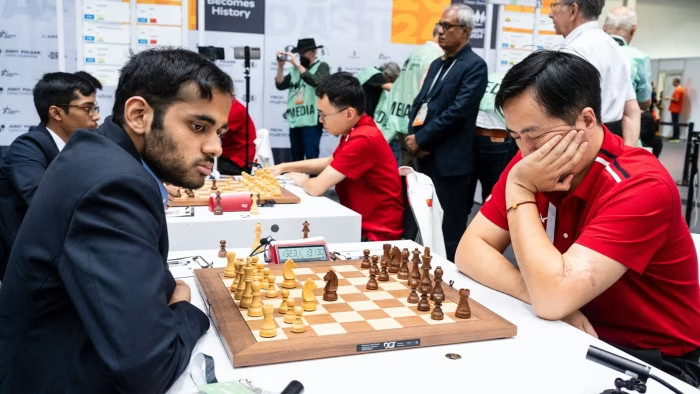
This article is an on-site version of our FirstFT newsletter. Subscribers can sign up to our Asia, Europe/Africa or Americas edition to receive the newsletter every weekday. Explore all of our newsletters here
Good morning. Today we’re covering:
-
The latest move in the US crackdown on Chinese EVs
-
How Trump would reshape the US economy
-
A dangerous era for China’s super-rich
But first, Israel launched a relentless wave of air strikes against what it said were Hizbollah targets yesterday, killing more than 490 people in Lebanon’s deadliest day for decades.
Israeli warplanes struck hundreds of targets across the country, including Beirut’s southern suburbs, as Benjamin Netanyahu’s government ramped up its assault on Hizbollah in a “new phase” of the war.
The bombardment heightened concerns about full-scale hostilities in the Middle East and spread panic across Lebanon, sending tens of thousands fleeing targeted areas.
Yesterday’s death toll was the highest since Israel launched a ground offensive against Hizbollah in 2006, and came despite the US warning Israel not to escalate its military campaign against the Iranian-backed militant group. Here are more details on the attack.
Here’s what else I’m keeping tabs on today:
-
Economic data: South Korea reports its August producer price index. S&P Global publishes flash manufacturing PMI for Japan.
-
Monetary policy: The Reserve Bank of Australia is expected to keep rates steady when its policy meeting concludes today. (Reuters)
-
United Nations: The UN General Assembly debate opens in New York.
Five more top stories
1. The US Commerce Department yesterday proposed banning Chinese software and hardware for vehicles with a built-in internet connection, in a move that would effectively ban Chinese vehicles from the US market. The rule was prompted by concerns from the Biden administration that Beijing could collect data on American drivers and hack internet-connected cars.
2. Australia’s consumer watchdog has sued the country’s two largest supermarket chains Coles and Woolworths, alleging that they engaged in “misleading” discounting on hundreds of products ranging from Tim Tam biscuits to cat food. The two supermarkets control about 65 per cent of Australia’s grocery market, according to a Treasury report this year.
3. The Minerals Security Partnership, a coalition of 14 nations and the European Commission, has announced a new financing network to support critical minerals projects, in a drive to break China’s chokehold over a sector that is essential for high-tech industries. The project is a challenge to Chinese-backed investment in Indonesia that has reshaped the nickel market, turning the south-east Asian nation into an effective monopoly in the metal.
4. The man suspected of plotting to kill Donald Trump in Florida wrote a letter describing his “assassination attempt” months before the incident, according to a court filing submitted by federal prosecutors yesterday. Prosecutors said Ryan Wesley Routh dropped the handwritten letter off at an unnamed witness’s house several months ago.
5. German Chancellor Olaf Scholz has come out against a UniCredit takeover of Commerzbank after the Italian lender said it was raising its stake from about 9 per cent to 21 per cent. The emergence of UniCredit as a major shareholder has ignited political opposition in Berlin against a cross-border tie-up. Here’s what’s driving the uproar in Germany.
The Big Read

Donald Trump has developed a populist economic policy agenda designed to present him as a defender of workers’ interests. “Maganomics” would include more aggressive tariffs on imports, especially from China, and a draconian crackdown on immigration. Critics warn that the policies would not help the US compete with its rival and instead cause huge damage to the economy.
We’re also reading . . .
-
China’s wealthy: Contrary to Deng Xiaoping’s slogan, it is no longer “glorious” to get rich in Xi Jinping’s China, writes Ruchir Sharma. It is dangerous.
-
Chinese propaganda classes: Hours of political education are supposed to reinforce loyalty but young people struggle to stay awake, writes Kai Waluszewski.
-
Nippon Steel: The Japanese group’s bid for US Steel is not just a simple matter of politics versus economics, but a proxy for many difficult questions with no easy answers, writes Rana Foroohar.
Chart of the day
Nio, Xpeng and BYD from China and US start-ups including Tesla, Rivian and Lucid dominate the latest ranking of auto groups’ digital performance from consultancy Gartner. Legacy carmakers including Toyota, Volkswagen and General Motors have struggled to keep pace as the focus has turned from the engine to computing power in the electric vehicle era.

Take a break from the news
India dominated the Chess OIympiad in Budapest last Sunday, winning gold medals in both the men’s and women’s competitions. Our chess columnist Leonard Barden writes that the country’s superiority was reminiscent of the legendary USSR teams of the 1950s and 1960s, which rarely lost a game, let alone a match.

Additional contributions from Tee Zhuo and David Hindley